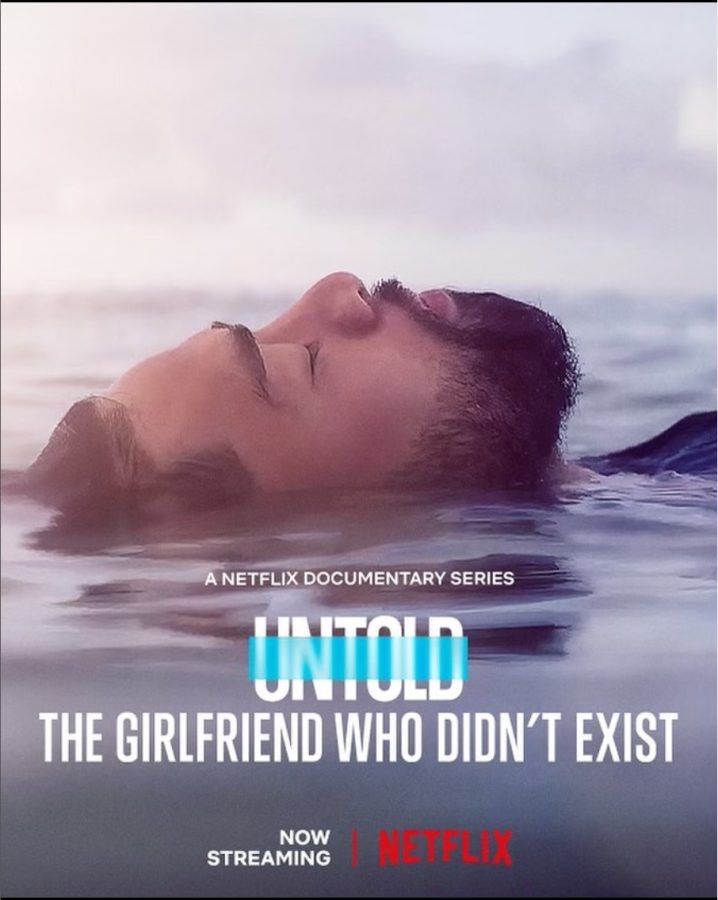The Manti Te’o fiasco of early 2013 was, in a sense, the most American story of the last 20 years. It is a tale about one of the most transcendent college football programs, its best player and how that kind of celebrity intersects with themes of sexual identity, religion, race and internet misuse. It was all put on display by mainstream media who completely failed to do their job effectively, costing a 21-year-old kid his reputation, his mental health and millions of dollars.
The story is centered around two figures, Manti Te’o and the person who catfished him, Ronaiah Tuiasosopo. Tuiasosopo presented as male at the time but has since come out as transgender. She now identifies as a woman, going by the name Naiah, and goes on the record in the documentary for the first time in 10 years to talk about her experience.
It begins with what essentially is exposition, talking about Notre Dame’s college football program at the time, a brief overview of who Manti Te’o was before donning the blue and gold and Tuiasosopo’s struggles with gender dysphoria. This section serves as the introduction to Lennay Kekua, the Facebook character Tuiasosopo created to help cope with her dysphoric feelings during her high school years.
I thought this initial portion really took me out of the documentary. It establishes right away that Te’o had no knowledge of the hoax prior to it completely tanking his first-round NFL aspirations and costing him his reputation. Thus, the apparent attempt by the documentary to try to paint Tuiasosopo as some kind of victim because she was transgender is disrespectful to how much Te’o lost.
Regardless, the documentary continues as Te’o then receives a Facebook friend request from a girl named Lennay Kekua. Tuiasosopo had been using this persona for a while and had even created fake profiles for parents and siblings.
As Te’o dominated on the field through his junior year, he and Kekua got closer, with them talking on the phone every day and even making plans to see each other. That was when Tuiasosopo lost control of the situation, and this was when I thought the documentary found its groove. Throughout the documentary, Te’o was remarkably genuine and honest about the entire situation, stressing that at the time, he did not see anything wrong with the lack of visual contact because his best friend was also in a long-distance relationship.
By senior year, Te’o’s suspicions were beginning to rise and Tuiasosopo knew that she had to end it, so she faked a car crash and diagnosed Kekua with Leukemia, a disease that she would then lose her life to a few months later, on the same day as Te’o’s real-life grandmother. This story set the sports world on fire as Te’o dedicated this Heisman finalist-worthy season to his two lost loved ones.
However, this is when the whole story took a turn. Two reporters for the sports blog Deadspin became prominent figures in the documentary as they detailed their reception of an anonymous tip that told how the sad story of Manti Te’o was a complete hoax. They eventually found Tuiasosopo and published the news, which then got picked up by every TV news show in the country.
The documentary showed a B-roll of well-respected and well-known figures and programs from Anderson Cooper to Saturday Night Live laughing while speculating about whether Te’o knew about the hoax, which then becomes the entire story. The directors do an incredible job here, taking what I personally remember to have been a humorous and confusing story into one that was extremely depressing. It showcased the real-world consequences that all of these media outlets taking these insane leaps had on the Te’o family and on Te’o’s personal mental health.
Te’o was unable to shake the turmoil caused by this awful event. He even says that he was so mentally unhealthy that he relegated himself from a sure-fire, first-round draft pick-level player to one that could barely make a tackle.
Yet, through all of this undeserved awfulness, the documentary ends on a note of hope and promise, as Te’o talks about how he has finally forgiven himself for trusting that Kekua could possibly be real. Te’o’s sincere optimism is contrasted by Tuiasosopo’s continued lack of real compunction for the ordeal she put the Te’o family through.
Overall, I thought that the producers did an amazing job telling this outlandish story for what it truly was. They highlighted how much Te’o’s life was destroyed, not just by Tuiasosopo but also by a media which pounced on his vulnerabilities and made him a laughing stock.






































































































